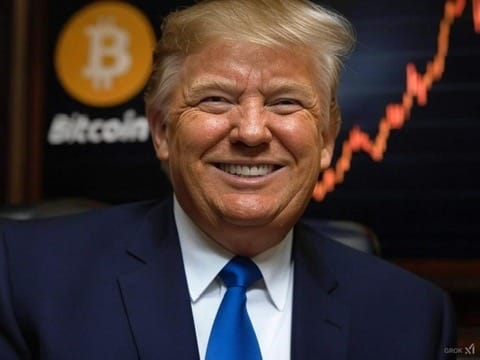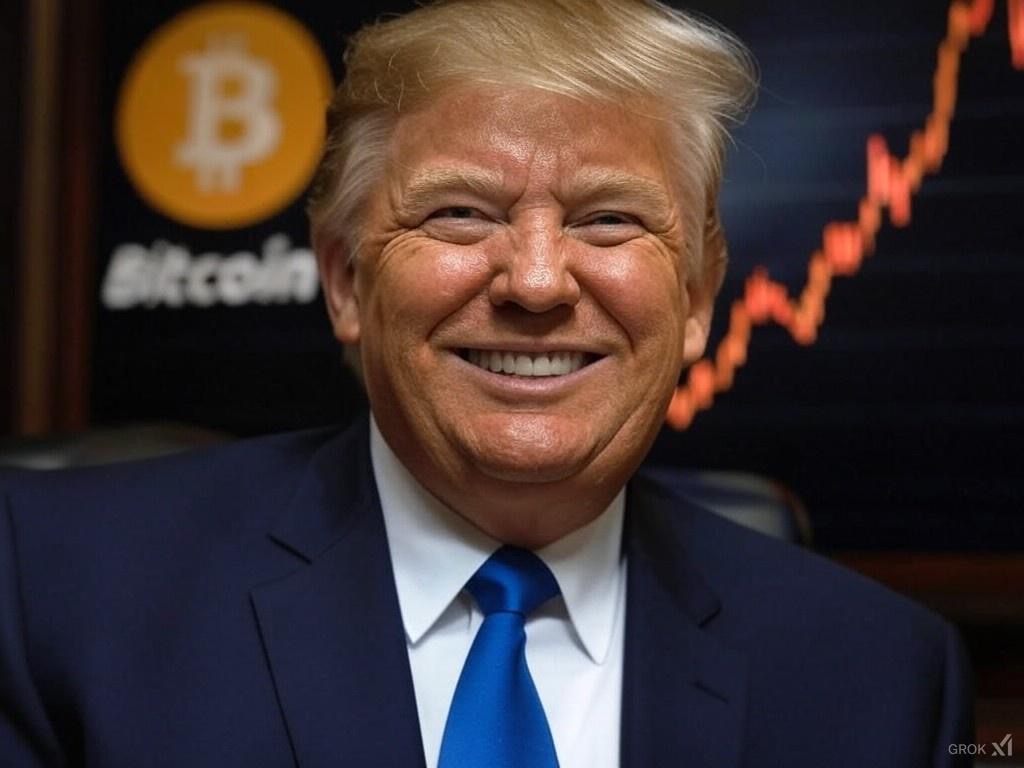Will Trump Spark a "Bitcoin Arms Race"?

The re-election of Donald Trump has reignited discussions about a national strategic Bitcoin reserve. Bitcoin's value has surged above $100,000 as Trump champions the cryptocurrency. Trump believes that creating a U.S. Bitcoin reserve will solidify the nation's leadership in the global financial system. Could this move trigger other nations to follow suit, sparking a "Bitcoin arms race"?
What is a Strategic Bitcoin Reserve?
Just as nations hold reserves of gold and foreign currencies, a strategic Bitcoin reserve would add Bitcoin to a country's balance sheet. The idea is that Bitcoin's unique properties could offer several benefits:
- Hedge Against Inflation: Bitcoin's fixed supply of 21 million coins makes it inherently deflationary, potentially protecting against the erosion of the dollar's value.
- Enhanced Financial Credibility: Holding Bitcoin signals a commitment to embracing cutting-edge financial technologies, potentially attracting foreign investment and reinforcing confidence in the U.S. financial system.
- Counter to Global Adversaries: As countries like China develop central bank digital currencies (CBDCs), the U.S. could use Bitcoin to maintain its leadership in global finance.
- Debt Sustainability: Adding an asset like Bitcoin, which the U.S. government cannot control, could signal fiscal responsibility and a dedication to sound monetary policy.
Is a Strategic Bitcoin Reserve Feasible?
While the idea has gained momentum, particularly among Bitcoin proponents, some financial experts remain skeptical. They cite several concerns:
- Bitcoin's Volatility: Bitcoin's price can fluctuate dramatically, making it a risky asset to hold in large quantities.
- Limited Market Capitalization: Bitcoin's market cap is still relatively small compared to traditional reserve assets, potentially limiting its impact.
- Regulatory Hurdles: Establishing a national Bitcoin reserve would require significant regulatory changes, and many agencies remain wary of cryptocurrencies.
- National Debt: The U.S. already has a substantial national debt, and financing a large-scale Bitcoin purchase could exacerbate the problem.
Global Implications
Despite the challenges, the U.S. taking the lead on Bitcoin could have significant global repercussions:
- The "FOMO Effect": Other countries might feel pressured to acquire Bitcoin to avoid being left behind, creating a "Bitcoin arms race" similar to the nuclear arms race of the 20th century.
- Mainstream Adoption: Widespread government adoption could accelerate Bitcoin's integration into the global financial system.
- New Financial Framework: Countries that embrace Bitcoin early could gain a strategic advantage, potentially reshaping the global monetary order.
A New Era of Finance?
The potential for a U.S. strategic Bitcoin reserve has ignited both excitement and apprehension. While questions of feasibility and economic impact remain, the move could usher in a new era of finance, where Bitcoin plays a central role in national and global economic strategies. Whether other countries will join the U.S. on this uncharted path remains to be seen, but the world is watching closely.
Disclaimer:
The information provided on dnalevity.com is for educational and informational purposes only and should not be considered as financial advice. We do not offer investment recommendations or endorse any specific investment or financial strategy. All content is presented without warranty, and readers are encouraged to conduct their own research and consult with a professional financial advisor before making any investment decisions. dnalevity.com and its contributors will not be held liable for any losses or damages resulting from the use of this information. Remember, all investing involves risk, including the potential loss of principal.
Listen to the Podcast






